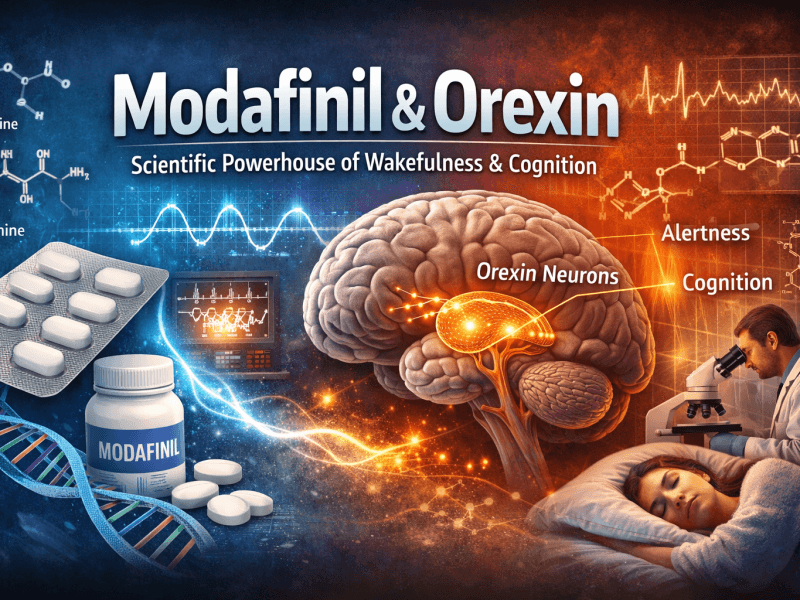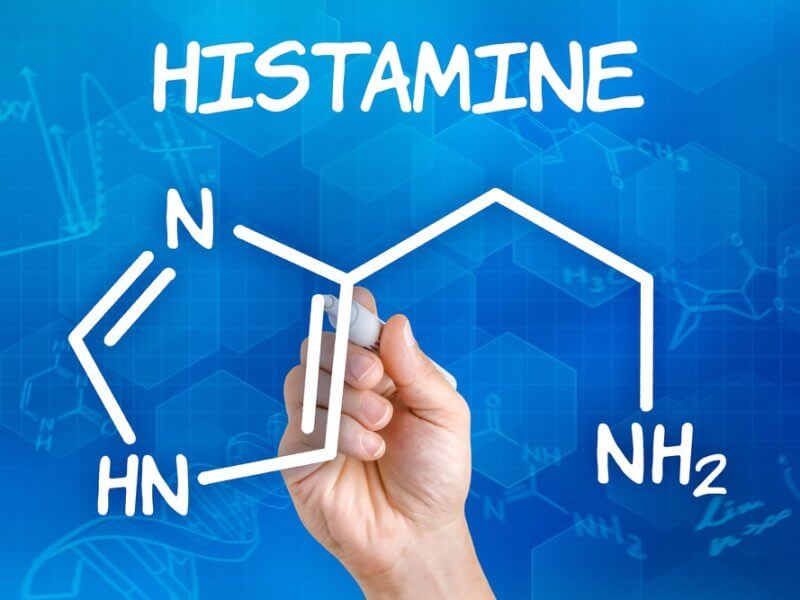Modafinil is a prescription medication often used to treat conditions like narcolepsy, sleep apnea, and shift work disorder. It’s known for its ability to promote wakefulness and cognitive performance. But aside from its primary effects, Modafinil has sparked a number of questions about its impact on appetite. Many users report changes in their eating habits, but what’s the real connection between Modafinil and appetite?
How Modafinil Works
To understand Modafinil’s effect on appetite, we need to first explore how it works. Modafinil is a central nervous system stimulant, although it doesn’t carry the same level of risk or intensity as other stimulants like amphetamines. It promotes wakefulness by altering the levels of certain neurotransmitters in the brain, such as dopamine, norepinephrine, and histamine. These changes enhance alertness, focus, and overall cognitive function.
Modafinil’s Influence on Appetite
One of the lesser-known aspects of Modafinil use is its potential influence on appetite. While it’s primarily known for its cognitive-enhancing effects, many users report a suppressed appetite while on the drug. But is this suppression a universal experience, or does it vary from person to person?
Appetite Suppression: Fact or Fiction?
While not all users of Modafinil experience appetite suppression, it is a side effect reported by many. The drug’s impact on appetite seems to be tied to its effects on neurotransmitters like dopamine, which play a significant role in regulating hunger signals. But how exactly does Modafinil influence appetite?
How Modafinil Might Affect Appetite
Impact on Dopamine and Appetite Regulation
Dopamine, often referred to as the “feel-good” neurotransmitter, plays a key role in regulating both mood and appetite. Modafinil increases dopamine activity in the brain, which is one of the reasons why it boosts energy and alertness. However, this same dopamine increase can also affect appetite regulation, making you feel less hungry than usual.
Effects on Hormones: Ghrelin and Leptin
Two important hormones in hunger regulation are ghrelin and leptin. Ghrelin stimulates appetite, while leptin helps you feel full. Modafinil may affect the balance between these hormones, possibly reducing the sensation of hunger. This could be one reason why users report eating less while using the drug.
Does Modafinil Cause Weight Loss?
While some users may experience weight loss due to appetite suppression, the effects vary. In many cases, weight loss from Modafinil is not drastic, especially when the drug is used for its intended purposes, such as managing sleep disorders. However, some individuals may notice a small reduction in body weight, primarily due to eating less.
Potential Impact on Body Weight
The weight loss associated with Modafinil is generally modest, and not everyone who takes it will experience a noticeable reduction in body weight. However, for individuals already struggling with maintaining a healthy weight, it’s important to keep an eye on any potential changes in eating habits while using the drug.
Studies and Research Findings
Research on Modafinil’s effects on weight and appetite is still limited, but some studies suggest that it can lead to a slight reduction in body weight, primarily due to appetite suppression. More research is needed to determine the full scope of its effects on metabolism and weight management.
Possible Appetite-Related Side Effects
While the suppression of appetite might seem like a benefit to some, it can have negative side effects as well. For instance, eating less can lead to nutrient deficiencies if users do not compensate by eating nutrient-dense foods during their meals.
Reduced Appetite and Eating Habits
Some individuals may struggle to eat enough, especially if they don’t feel hungry while on Modafinil. This can lead to poor eating habits and, over time, nutritional imbalances. It’s important to remain mindful of your diet while using Modafinil to avoid any long-term health issues.
Potential for Weight Loss or Nutrient Deficiency
Although weight loss may be a goal for some, excessive weight loss or nutrient deficiencies can be harmful. It’s crucial to balance appetite suppression with proper nutrition. If you’re using Modafinil and notice that you’re eating less than usual, make sure your meals are well-balanced and nutrient-rich.
Modafinil and Healthy Eating Habits
When taking Modafinil, it’s essential to maintain healthy eating habits. Despite feeling less hungry, your body still needs proper fuel to function optimally. Make sure you prioritize meals that are rich in vitamins, minerals, and protein.
Importance of Balanced Nutrition While Using Modafinil
Even if your appetite is suppressed, your body requires essential nutrients to maintain energy levels, cognitive function, and overall well-being. Aim for a balanced diet with plenty of fruits, vegetables, whole grains, and lean proteins to ensure that you’re meeting your nutritional needs.
How to Maintain Proper Diet During Modafinil Use
To maintain a healthy diet while on Modafinil, plan your meals ahead of time, and focus on nutrient-dense foods. Even if you’re not feeling hungry, try to eat smaller meals throughout the day to avoid energy dips.
Comparing Modafinil to Other Stimulants
Modafinil is often compared to other stimulants like amphetamines and caffeine. While these substances also impact appetite, Modafinil’s effects are generally milder, and its influence on appetite may not be as pronounced as with other stimulants.
Modafinil vs. Amphetamines and Caffeine
Unlike amphetamines, which can lead to significant appetite suppression and weight loss, Modafinil’s effects on hunger are more moderate. Similarly, while caffeine can suppress appetite in some individuals, the effects are usually short-lived compared to Modafinil’s prolonged wakefulness benefits.
Who Should Be Cautious About Using Modafinil?
While Modafinil is generally safe for most people, it’s not for everyone. Certain health conditions, such as eating disorders, may make Modafinil use more risky, especially if appetite suppression becomes a problem.
Health Conditions and Risks
If you have a history of eating disorders, weight management issues, or any other health conditions related to metabolism, it’s important to consult a healthcare provider before using Modafinil.
Potential Drug Interactions Affecting Appetite
Modafinil can interact with other medications, and some of these interactions may exacerbate appetite suppression or lead to other side effects. Always consult with a healthcare professional before combining Modafinil with other drugs.
Managing Appetite and Side Effects of Modafinil
If you find that Modafinil is affecting your appetite more than you’d like, there are ways to manage these side effects. Here are some practical tips to help you maintain a healthy appetite and ensure you’re still getting the nutrients you need while taking the medication.
Practical Tips for Managing Hunger and Eating Habits
- Stay Hydrated: Sometimes, thirst is mistaken for hunger. Drinking water throughout the day can help curb unnecessary cravings and support overall health.
- Eat Small, Frequent Meals: If you’re not feeling hungry, try eating smaller meals more frequently throughout the day. This can help prevent feelings of extreme hunger later on and ensure you’re still getting enough calories.
- Focus on Nutrient-Dense Foods: Even if you’re eating less, make every bite count. Opt for foods high in nutrients, such as lean proteins, whole grains, and vegetables. These foods can provide more energy and keep you fuller for longer.
- Avoid Skipping Meals: Skipping meals might seem tempting if you’re not hungry, but it can negatively affect your metabolism. Try to eat at regular intervals to maintain stable energy levels and prevent overeating later in the day.
- Monitor Your Weight and Health: Keep track of any changes in your weight, energy levels, and general health. If you notice any concerning symptoms, like fatigue or dizziness, it might be time to re-evaluate your diet or medication use.
Modafinil’s Impact on Mental Health
Modafinil’s effects on appetite are closely tied to its impact on mental health. As a cognitive enhancer, Modafinil boosts brain activity and alertness, which may indirectly influence your eating patterns. However, it’s important to recognize that mental well-being and eating habits are interrelated.
Connection Between Mental Health and Appetite
Mood and mental health can significantly affect appetite. For example, increased anxiety or stress levels can lead to either overeating or reduced appetite. Since Modafinil can affect mood, particularly in sensitive individuals, it might indirectly influence eating behavior.
How Modafinil Can Affect Mood and Eating Patterns
Some users of Modafinil report mood changes, ranging from increased alertness to feelings of anxiety or irritability. These emotional shifts can also influence how people approach food. For some, increased mental stimulation might suppress hunger, while for others, it might trigger the opposite effect.
Should You Be Concerned About Appetite Loss on Modafinil?
While a reduced appetite might sound like a benefit, it’s essential to consider how it might affect your long-term health. In some cases, appetite suppression can lead to malnutrition or unhealthy weight loss. If you find that your appetite loss is persistent or affecting your daily functioning, it may be time to speak with your doctor.
When Appetite Suppression Becomes Problematic
If you’re consistently eating less than you need, it could cause nutritional deficiencies. It’s vital to stay vigilant about how your body responds to Modafinil, especially if you’re noticing significant changes in your appetite.
Seeking Professional Guidance
If you have concerns about appetite suppression or any other side effects while using Modafinil, don’t hesitate to talk to your healthcare provider. They can help assess whether the medication is right for you or if an alternative might be more suitable.
Conclusion
Modafinil is a powerful cognitive enhancer that can positively affect alertness, focus, and cognitive function. However, its impact on appetite varies from person to person. Some may experience suppressed hunger, while others may not notice any changes in their eating habits. The connection between Modafinil and appetite is complex and still not fully understood, but it’s clear that managing your diet and nutrition while using the drug is essential.
If you’re using Modafinil and find that appetite suppression is affecting your health or eating habits, consider making adjustments to ensure that you’re meeting your nutritional needs. Speak with a healthcare professional if you have concerns about the drug’s effects on your body or appetite.
FAQ
1. Does Modafinil cause significant weight loss?
Modafinil can cause mild weight loss for some users due to appetite suppression, but the effects are typically modest. Weight loss should not be expected as a major side effect for everyone.
2. How long does the appetite suppression last?
The appetite-suppressing effects of Modafinil can vary, but they typically last as long as the drug’s stimulating effects, which is usually 8-12 hours. After the effects wear off, your appetite may return to normal.
3. Can I take Modafinil without affecting my appetite?
It’s possible to take Modafinil without significant changes in appetite, but this depends on how your body reacts to the drug. If appetite suppression becomes a concern, consult a healthcare provider for guidance.
4. Are there any long-term effects of Modafinil on appetite?
There is no clear evidence suggesting that Modafinil causes long-term changes to appetite. However, long-term use of the drug may lead to changes in eating habits or nutrition, particularly if appetite suppression is significant.
5. How do I maintain a healthy diet while on Modafinil?
To maintain a healthy diet while on Modafinil, focus on eating smaller, more frequent meals that are nutrient-dense. Drink plenty of water, avoid skipping meals, and make sure your meals contain a variety of whole foods to meet your nutritional needs.
‼️ Disclaimer: The information provided in this article about modafinil is intended for informational purposes only and is not a substitute for professional medical consultation or recommendations. The author of the article are not responsible for any errors, omissions, or actions based on the information provided.
References:
- U.S. Food and Drug Administration. PROVIGIL. U.S. Department of Health and Human Services. https://www.accessdata.fda.gov/drugsatfda_docs/label/2015/020717s037s038lbl.pdf . 2015
- Ballon JS, Feifel D. A systematic review of modafinil: potential clinical uses and mechanisms of action. J Clin Psychiatry. 2006
- Willavize, S. A., Nichols, A. I., & Lee, J. Population pharmacokinetic modeling of armodafinil and its major metabolites. https://doi.org/10.1002/jcph.800 . 2016
- Becker, P. M., Schwartz, J. R., Feldman, N. T., & Hughes, R. J. Effect of modafinil on fatigue, mood, and health-related quality of life in patients with narcolepsy. https://doi.org/10.1007/s00213-003-1508-9 . 2004
- Wirz, S., Nadstawek, J., Kühn, K. U., Vater, S., Junker, U., & Wartenberg, H. C. Modafinil zur Behandlung der Tumorfatigue: Eine Interventionsstudie [Modafinil for the treatment of cancer-related fatigue: An intervention study]. https://doi.org/10.1007/s00482-010-0987-y . 2010
- Woo, J., & Verduzco-Gutierrez, M. Traumatic brain injury: An overview of epidemiology, pathophysiology, and medical management. Medical Clinics of North America. https://doi.org/10.1016/j.mcna.2019.11.001 . 2020
- Oliva Ramirez A, Keenan A, Kalau O, Worthington E, Cohen L, Singh S. Prevalence and burden of multiple sclerosis-related fatigue: a systematic literature review. https://doi.org/10.1186/s12883-021-02396-1 . 2021.
- Ciancio A, Moretti MC, Natale A, Rodolico A, Signorelli MS, Petralia A. Personality Traits and Fatigue in Multiple Sclerosis: A Narrative Review. Journal of Clinical Medicine. https://doi.org/10.3390/jcm12134518 . 2023
- Mereu, M., Bonci, A., Newman, A. H., & Tanda, G. The neurobiology of modafinil as an enhancer of cognitive performance and a potential treatment for substance use disorders. https://doi.org/10.1007/s00213-013-3232-4 . 2013
- Greenblatt, K., & Adams, N. Modafinil. StatPearls Publishing. https://www.ncbi.nlm.nih.gov/books/NBK531476/ . 2023


